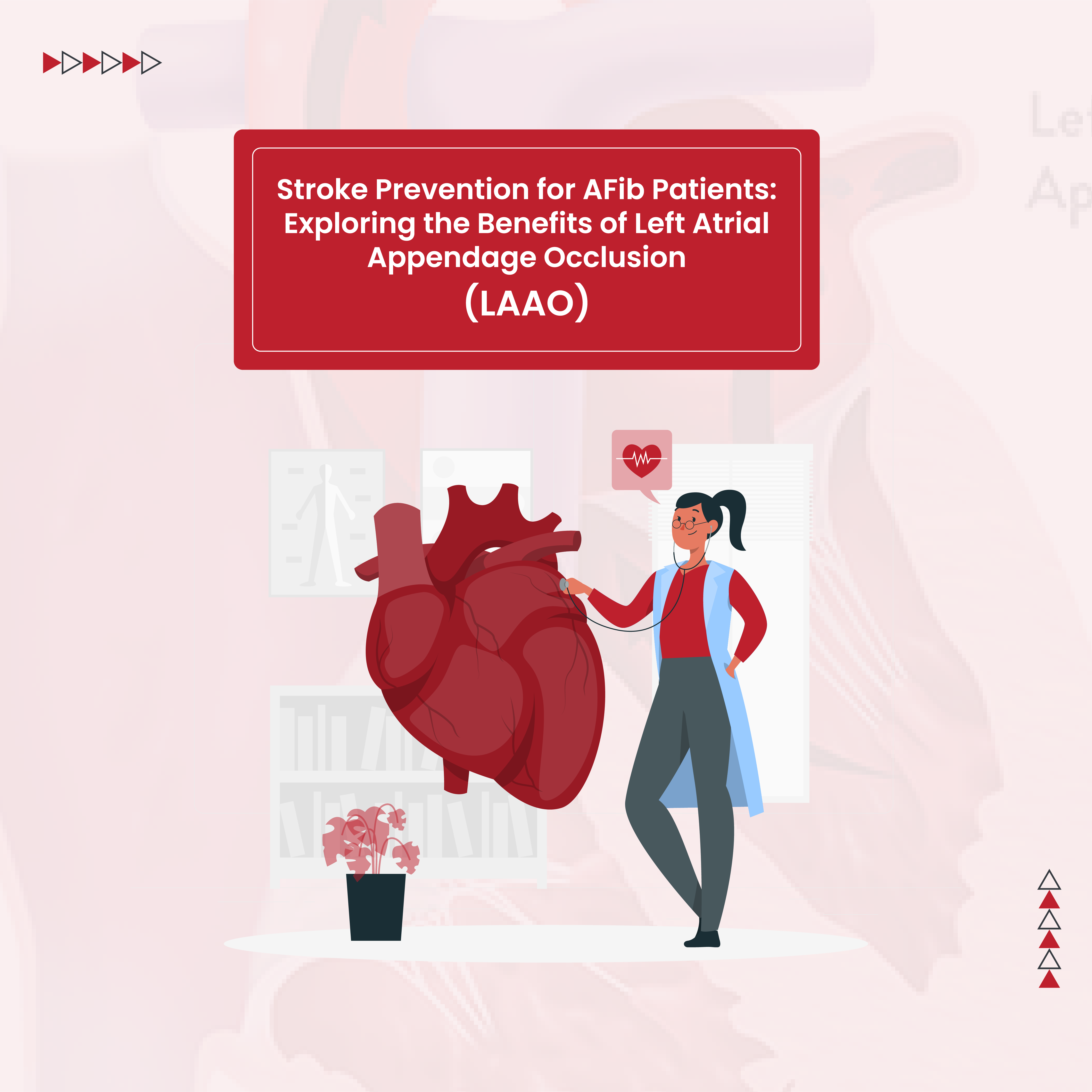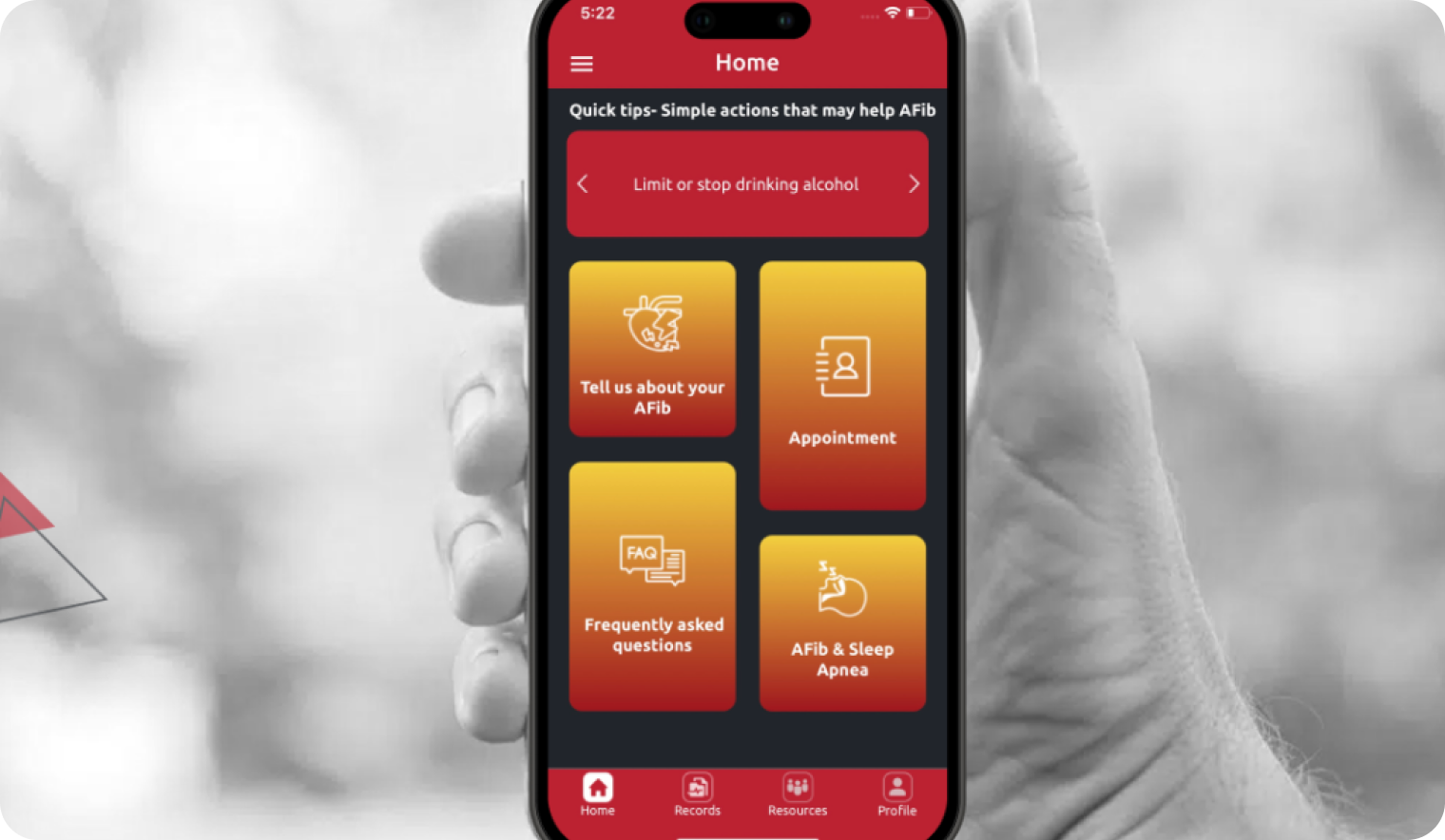
Stroke Prevention for AFib Patients: Exploring the Benefits of Left Atrial Appendage Occlusion (LAAO)
People with atrial fibrillation (AFib) have a 5x increased
Our team of heart doctors and nurses specialize in atrial fibrillation and developing highly personalized treatment plans for the best possible outcomes.

A cardiologist is a doctor who specializes in diagnosing and treating conditions which affect the heart. These may include high blood pressure, high cholesterol, coronary artery disease, heart attack, heart failure, or abnormal heart rhythms (arrhythmias).
The heart has a complex electrical system which causes the heart muscle to contract and pump blood through the heart and out to the body. It is important for the electrical signals to move through the heart cells in a coordinated manner to create a normal heartbeat and heart rhythm. If there is a problem with the heart’s electrical system, the heart does not function normally and a person may experience palpitations, weakness, lightheadedness, or may even pass out.
If you are suspected of having a problem with your heart’s electrical conduction system, your primary care provider or cardiologist may refer you to a cardiac electrophysiologist. An electrophysiologist is a cardiologist who has undergone additional training and is an expert in diagnosing and treating problems with the heart’s electrical system. They are trained to perform specialized electrophysiology tests and electrophysiology procedures.

The first step in therapy for AFib is to determine the patient’s values and goals for their health, assess the impact of AFib on their activities of daily living and lastly assess their risk for stroke. Lifestyle modifications and addressing other contributing factors like sleep apnea are the first treatment options followed by medications, procedures and surgeries.
Lifestyle
Modifications &
Shared Decision Making
Pharmacological Management
Arrhythmia Procedures
Catheter Ablations, Radiofrequency, Laser & Cryo Ablations, Pulmonary Vein Isolation
Hybrid or Minimally Invasive Epicardial Ablation
Left Atrial Appendage Therapy or Cardiac Stroke Prevention
Stay ahead with the latest healthcare insights and trends. Dive into our blog for expert advice and informative articles. Get informed and make empowered decisions for a healthier life!

People with atrial fibrillation (AFib) have a 5x increased

We are thrilled to announce the official launch of

Does Turmeric Help Atrial Fibrillation? Turmeric is a perennial
Discover inspiring journeys of recovery and triumph over health challenges. Our success stories highlight the resilience and determination of our patients. Read on to find hope and motivation for your own path to wellness.
"As a whole, patients' pre-procedure scores improve by over 30 points after an ablation with the Fix AFib Clinic."
"Two weeks after my heart surgery, I am back to work, directing my son in the garden, and feeling better than I have in nearly three years! Thank you."
"I would like to sincerely thank Dr. Laws for saving my life. The appreciation that I have for you is immeasurable."
"To Dr. Laws and the whole team, with gratitude for your care and kindness."
"Survey results show Fix AFib patients have a 'significant, meaningful difference in their quality of life' after an ablation procedure."
Tell us your concerns, or review your wearable rhythm strip results with one of our specialists